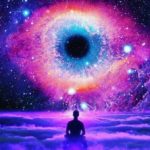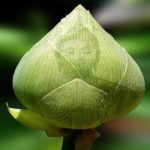Recent Comments
- Chodpa on The Place where the Primordial Speaks
- Chodpa on The Cuckoo of Presence
- Afzar on Bodhidharma’s teacher, Prajnatara
- Vajragoni on Audiobook is released
- Scott on Audiobook is released
-
Recent Posts
Categories
- A Darkness Visible
- A Docetic Assessment
- A Mystical Odyssey through the Sagathakam
- AI Creations
- Akṣayamatinirdeśasūtra
- Akṣhobhya’s Pure Land
- Ālaya-vijñāna
- Anūnatvāpūrṇatvanirdeśaparivarta
- Ariyapariyesanā Sutta
- Ascending the Noble Mountain of Primordial Perfection
- Asceticism
- Ashtavakra Gita in Light of the Unborn
- Audiobook
- Bankei Zen
- Beyond the Ascent
- Beyond the Rainbow Body
- Black Dragon Eye Mandala
- Bodhicitta
- Buddhadharma
- Buddhism’s Black Holes
- Buddhist Anecdotes
- Buddhist Hells
- Buddhist Meditations on the Tarot
- Chuang-Tzu
- Contemporary Musings
- Ḍākiṇī
- Dāsbodh
- Dharmakaya Abbey
- Dharmakaya Stick
- Divine Revelation
- Doctrine of the Void
- Dust Contemplation
- Ekacitta: Advanced Studies in Dark Zen
- Entry into the Dharmadhātu
- Eremitical Dhyani Meditations
- Exploring the Book of Revelation
- Gnostikos
- Hsin Hsin Ming
- Journey to the Center of the Mind
- Karma and Rebirth
- Korean Sŏn
- Kulayarāja Tantra—The Motherly Buddha
- Little Office of Our Lady of the Void
- LSD and Psychedelic Buddhism
- Māṇḍukya Kārikā
- Mañjuśrī Teaches Prajñāpāramitā
- Māra and Satan
- Meister Eckhart
- Mud and Water: Bassui Zen
- Mystagogia
- Nirvana
- Notes from the Iron Stupa
- Nothingness in Nāgārjuna and John of the Cross
- Obscure Religious Cults
- Preparation for the Afterlife
- Primordial Qigong
- Reflections on the Saṃdhinirmocana Sūtra
- Spirituality
- Springtime with Tozen
- Terma: A Mind Film by Vajragoni
- The Afterglow
- The Awakening of Faith
- The Bhagavad Gita
- The Book of Bodhi
- The Cloud of Unknowing in Light of the Unborn
- The Diamond Sutra
- The Divine Ātman
- The Divine Liturgy of Vajrasattva
- The Doctrine of Awakening
- The Dragon Mind of Zen Tarot
- The Elucidation of Consciousness
- The Experience of No-Self
- The Great Perfection of the Unborn Mind: A Book of Privy Counseling
- The Heart Sutra
- The Hermit's Den
- The Khaggavisāṇa Sutta: A Rhinoceros Horn
- The Lankavatara Sutra
- The Lankavatarian Book of the Dead
- The Lion's Roar of Queen Śrīmālā
- The Lotus Sutra
- The Mahāparinirvāṇasūtra
- The Naga Chronicles
- The Platform Sutra
- The Ratnagotravibhāgaśāstra
- The School of the Spirit
- The Secret Golden Light of the Unborn
- The Soul
- The Śūrańgama Sūtra
- The Sutra of Primordial Enlightenment
- The Tathāgatagarbhatārā Tantra
- The Udāna
- The Unborn Mind Mythos
- The Unborn Mind Sessions
- The Unborn Odyssey: A Novel
- The Vajrasamādhi Sutra
- The Vimalakirti Sutra
- The Yogasūtras of Patañjali
- The Zen Teaching of Bodhidharma
- The Zen Teaching of Instantaneous Awakening
- The Zen Teachings of Huang Po
- Theologia Mystica
- Tozen Teaching
- Tsung-mi: An Intimate Study
- Unborn I Ching
- Unborn Light Reiki
- Uncategorized
- Vasubandhu and the Absolute
- Wisdom from the Masters
- Wordsworth and Zen
- Yoga of the Manomayakāya
- Zen
- Zuowang
Archives
- October 2024
- August 2024
- February 2024
- January 2024
- December 2023
- November 2023
- October 2023
- September 2023
- August 2023
- July 2023
- June 2023
- May 2023
- April 2023
- March 2023
- February 2023
- January 2023
- December 2022
- November 2022
- October 2022
- September 2022
- August 2022
- May 2022
- April 2022
- March 2022
- February 2022
- January 2022
- December 2021
- November 2021
- October 2021
- September 2021
- August 2021
- May 2021
- April 2021
- March 2021
- February 2021
- January 2021
- December 2020
- November 2020
- October 2020
- September 2020
- August 2020
- May 2020
- April 2020
- March 2020
- February 2020
- January 2020
- December 2019
- November 2019
- October 2019
- September 2019
- August 2019
- June 2019
- February 2019
- January 2019
- December 2018
- October 2018
- August 2018
- April 2018
- March 2018
- February 2018
- January 2018
- December 2017
- November 2017
- October 2017
- September 2017
- August 2017
- May 2017
- April 2017
- March 2017
- February 2017
- January 2017
- December 2016
- November 2016
- October 2016
- September 2016
- August 2016
- July 2016
- May 2016
- April 2016
- March 2016
- February 2016
- January 2016
- December 2015
- November 2015
- October 2015
- September 2015
- August 2015
- July 2015
- June 2015
- May 2015
- April 2015
- March 2015
- February 2015
- January 2015
- December 2014
- November 2014
- October 2014
- September 2014
- August 2014
- May 2014
- April 2014
- March 2014
- February 2014
- January 2014
- December 2013
- November 2013
- October 2013
- September 2013
- August 2013
- May 2013
- April 2013
- March 2013
- February 2013
- January 2013
- December 2012
- November 2012
- October 2012
- September 2012
- August 2012
- May 2012
- April 2012
- March 2012
- February 2012
- January 2012
- December 2011
- November 2011
- October 2011
Meta
Tag Archives: Self
Advaita Vedanta & the Self

We are now entering into more familiar ground with less emphasis on soul extensions as Advaita Vedanta places them as secondary to the all-encompassing and Cosmic notion of the Self. The Self is synonymous with Ātman or the Absolute Parabrahman. Firstly, let’s break down its etymology:
Posted in The Soul
Tagged Advaita Vedanta, Atman, Nisargadatta Maharaj, Parabrahman, Ramana Maharshi, Self, Yogananda
Leave a comment
The Self and Brahman in the Dhammapada

Bhattacharya reinforces the truth that the Buddha brought to fulfillment the Brahmaic Truth that was the New Ātman, the Arahant; this was most clearly presented in the Dhammapada.
Posted in The Divine Ātman
Tagged Brahman, Dhammapada, Self, The Word of the Doctrine
Leave a comment
Unborn Mind Zen on Vulture´s peak.

Finishing the ritual sharing of the green tea, the Master put down his cup, picked up his staff and pointed at my face. The gesture was so fast and perfectly executed, I failed to see where the staff started and ended up a mere inch in front of my nose as if it had materialized from a seemingly nowhere into a sudden somewhere.
Entering the Garbha-Self

Number Twelve is the flagship chapter for the Mahāparinirvāṇasūtra; it further details the True Nature of the Self and then highlights its salvific context as, “After hearing this sutra one thereupon understands that all living beings possess Buddha-nature, and this is the reason why I expound the Mahāparinirvāṇasūtra.”
Something Rare

Chapter Three: Lamentations
(Charles Patton translation):
For a moment not long after Cunda had gone, the ground then shook and quaked in six ways. And on up to the Brahma realms. It was also again so. There were two earthquakes. One was an earthquake, and the other was a great earthquake. The smaller quake was called an earthquake. The greater quake was called a great earthquake. There was a smaller sound called an earthquake and there was a greater sound called a great earthquake. Where only the ground shook, that was called the earthquake. Where the mountains, trees, and the waters of the sea all shook, that was called the great earthquake. Where it shook to one side, that was called an earthquake. Where it shook everywhere and all around, that was called a great earthquake. When it shook and could lead the minds of sentient beings to shake, that was called a great earthquake. When the bodhisattvas from the Tusita heavens down to Jampudvipa first took notice, it was called a great earthquake. And when the first born left the households life to achieve the supremely unexcelled bodhi, to turn the dharmawheel, and to enter parinirvana, it was called a great earthquake.
The Pure Zen of the Tathagatas
A layman asked: “Though Zen is said to be transmitted outside the scriptures and not through words, there are many more incidents of monks questioning teachers and inquiring of the Way than in the teaching sects. How can Zen be said to be outside the scriptures? And can reading the records of the old masters and seeing how they dealt with koans ever be considered outside the realm of words? What is the true meaning of the statement, ‘Outside the scriptures, not through words’?”
Posted in Mud and Water: Bassui Zen
Tagged Mind, Mind transmission, Self, Tathagata, Tathagatas, Zen
Leave a comment
A Hard Day’s Night
Deep looks upon Deep as the Singular-Whole,
And all External Associations are rendered Mute.
The ten-thousand things coalesce with Essential-Sameness,
You and the Dharmakaya are strangers no more.
Posted in Hsin Hsin Ming
Tagged action, External Associations, Nirvanic-Dharmakaic Kingdom of Self, Self, singularity
Leave a comment
(2) No Birth, No Death
If your true self is Un-born it will not experience death.
Thus…
There is no true birth, there is no true death. Only imagined and
experienced as very real through the awesome force of the Unborn Mind
that is caught within its own creation by its own sustaining and
powerful habit-energy.
Posted in The Dragon Mind of Zen Tarot
Tagged Birth, Death, dukkha, images, IT, Mind, Self, uncreated
Leave a comment
Egoless Action
3.27 The clouded-mind wearing the false-face of egotism thinks that it is the doer; in actuality the discharge of the three gunas initiates all natural-activities.
Posted in The Bhagavad Gita
Tagged Arjuna, Bhagavad Gita, ego, egoless, gunas, Jewish Lights Publishing, Kendra Crossen, natural proclivites, Self
19 Comments

